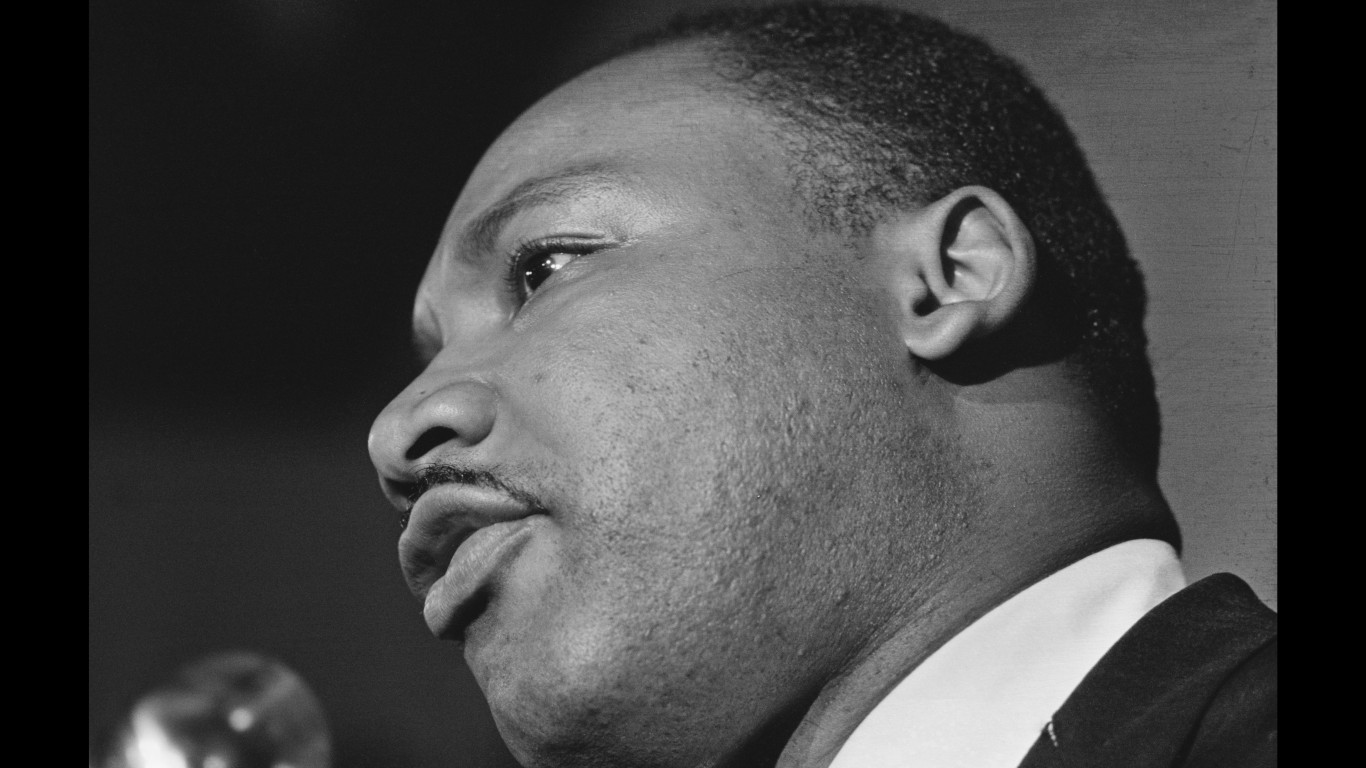
The success of a sports franchise is largely dependent on its ability to attract fans to games and sell tickets. The departure of the Rams from St. Louis after years of dwindling attendance in 2015 is certainly evidence of the importance of consistently filling seats with fans.
For every instance of a franchise such as the Rams, there are teams that have experienced a complete reversal in attendance in recent years. In fact, 10 major sports franchises have had at least a 25% improvement in the past decade. When this occurs, it is almost always the result of a team getting better results on the field. Attendance at Kansas City Royals games increased by more than 90% between 2005 and 2015. For such a team, the increased attendance can make the difference between being the next team to leave a market for Rams or becoming highly profitable.
An analysis of the performance and attendance records of professional hockey, baseball, football, and basketball franchises over the past decade or so reveals what is likely obvious to owners, players, and regular game attendees alike: nothing drives fans to games more than success, and nothing keeps them away more than the perception that the team is a lost cause. In the majority of cases for teams on this list with substantial improvements in attendance over the past decade, the teams were subpar at best — and often among the worst in the league. They then improved and are now winning games. The Royals, for example, had the worst record in baseball in 2005. Last year, they had the best record in the American League and won the World Series. This kind of dramatic improvement was the case for teams like the Detroit Tigers and the Arizona Cardinals as well, among others.
Click here to see the sports teams gaining the most fans.
It might be easy to assume that and if the Royals should have a poor season next year, attendance — and ticket revenues — would drop dramatically. The fact is that a few promising years and the resulting increase in fans can have long-term residual effects. One of the teams to make this list — the Colorado Rockies — won the World Series in 2007 but has only been to the postseason once since then. Still, Colorado’s attendance figures remain up by more than 30% compared to 10 seasons ago.
Franchise failure can actually be a cause of long-term success. Finishing several seasons at the bottom of the league means a team is able to draft elite players and build a team around them. Ten years ago, the Chicago Blackhawks and the Pittsburgh Penguins were two of the worst teams in the NHL and suffered poor attendance as a result. The Penguins averaged 11,877 fans per home game, and the Blackhawks averaged 13,253 per game, the lowest and fourth-lowest attendance in hockey that year. Those seasons finishing at the bottom of the standings, however, translated into drafting of star players such as Patrick Kane, Jonathan Toews, and Evgeni Malkin. Under the leadership of these players, the teams have become among the best in the league and have each won Stanley Cups — three, in the case of Chicago.
To determine which teams gained the most fans, 24/7 Wall St. reviewed 10-year percentage changes in attendance at regular-season home games in the National Hockey League (NHL), National Basketball Association (NBA), Major League Baseball (MLB), and National Football League (NFL). In the case of the NHL, NBA, and MLB, attendance figures are from ESPN and are as of the most recent completed season. Due to a lockout during the NHL season of 2004-2005, the 2003-2004 season was used as the benchmark in the case of hockey. NFL attendance figures were provided by Forbes and are as of the 2014 season. To avoid attendance increases based on an increase in stadium capacity, franchises that moved to a new facility with significantly higher capacity were excluded. The average percentage of capacity filled during home games in a season for all four sports also came from ESPN and is as of the most recent completed regular season unless otherwise specified.
These are the sports teams gaining the most fans.
10. Nashville Predators
> Sport: Hockey
> 10 year attendance increase: 28.1%
> Avg. home game attendance: 16,854
> Avg. capacity filled: 98.5%
The Nashville Predators entered the NHL in the 1998-1999 season, and like many new expansion teams, it took some time before the franchise was able to find consistent success. The team ended its first two seasons in the basement of the Central Division. At the start of the 2003-2004 season, the team had not seen a playoff game. Fortunes soon turned around for the Predators, however, and the team played well enough to make the playoffs nearly every year since the start of that season. Bolstered by star defenseman Shea Weber and elite goaltender Pekka Rinne, Nashville had one of its best seasons ever last year, finishing the 2014-2015 season with 104 points, the sixth best record in the NHL. As the team transitioned from a green franchise perennially on the outside of the playoffs looking in to a regular contender, fan involvement has also improved. Over the past 10 seasons, the team’s attendance has increased by roughly 28%.
9. Washington Capitals
> Sport: Hockey
> 10 year attendance increase: 29.7%
> Avg. home game attendance: 19,099
> Avg. capacity filled: 105.8%
The the three seasons beginning in 2003 were not the best years for the NHL’s Washington Capitals. The team finished in the bottom five in each of those seasons. The team’s poor performance during those years gave them high draft picks. Along with a lucky draft lottery win in 2004, this allowed the team to select Nicklas Bäckström and, more significantly, Alexander Ovechkin. Ovechkin’s record includes three Hart Trophies as league MVP, four 100-point seasons, and six seasons of at least 50 goals, including the most recent two. Under Ovechkin’s leadership, the team has missed the playoffs only once since the 2007-2008 season. The team finished last season with 101 points, good enough for second in the Metropolitan Division. In the past 10 seasons, the Capitals’ average attendance has increased nearly 30% at Verizon Center. That attendance may go up even more this season, as Washington has been the best team in the league through the first half.
8. Colorado Rockies
> Sport: Baseball
> 10 year attendance increase: 30.9%
> Avg. home game attendance: 31,334
> Avg. capacity filled: 62.1%
The Colorado Rockies have had a significant increase in fan attendance in the past decade or so, but there is still room for improvement. In 2005, the team filled an average of 47.4% of Coors Field’s capacity, the third lowest fill rate in baseball at that time. Last season, the team filled 62.1% of seats, which was an improvement but still ninth-worst in the MLB. In its 23 seasons, the Rockies have been relatively unsuccessful, making it to the postseason just three times. The team’s more than 30% attendance increase over the past decade may be due to one of those playoff appearances, in 2007. After having not played October baseball since 1995, the team finished just shy of first in the National League. The Rockies then made a surprising run through the postseason, winning all three games of their Divisional Series against the Phillies and the National League Championship Series against the Arizona Diamondbacks, before being swept in the World Series by the Red Sox.
7. Detroit Tigers
> Sport: Baseball
> 10 year attendance increase: 33.0%
> Avg. home game attendance: 33,654
> Avg. capacity filled: 81.6%
Behind triple-crown winning slugger Miguel Cabrera and ace pitcher Justin Verlander, among others, the Tigers have been one of the better teams in baseball. In 2005, the Tigers had the fourth worst record in the American League, winning just 44% of their games. That year, roughly 25,000 fans attended the average Tigers home game, filling approximately 63% of seats at Comerica Park. Ten years and six postseason appearances later — including two World Series appearances — an average of roughly 33,600 fans attended every game last season, filling more than 80% of seats. This is despite the team having its second worst season since 2005 that year, finishing second last in the American League.
6. Pittsburgh Pirates
> Sport: Baseball
> 10 year attendance increase: 34.1%
> Avg. home game attendance: 30,846
> Avg. capacity filled: 80.4%
Since the early 1990s, the Pittsburgh Pirates have seemed doomed to spend every postseason on the outside looking in. The team finished fourth or worse in the National League’s Central or East Division in 18 of the 20 seasons from 1993 through 2012 and did not make it to the playoffs once during that time. Those 20 seasons without a postseason attendance represented one of the longest in the history of North American professional sports at the time. However, the past three seasons have marked a remarkable turnaround for the Pirates. While the team has not made it past the divisional round, it has finished in the top five in the National League, including a second place finish last year after a 98 win, 64 loss season.
5. Toronto Blue Jays
> Sport: Baseball
> 10 year attendance increase: 38.7%
> Avg. home game attendance: 34,504
> Avg. capacity filled: 70.0%
The Toronto Blue Jays have been Canada’s only MLB team since the Montreal Expos left the city to become the Washington Nationals in 2005. The Blue Jays followed back-to-back World Series titles in 1992 and 1993 with a 21-season postseason drought. In 2005, the team filled less than half its seats, the fourth worst average rate in baseball that year. The Blue Jays continued to underperform even after adding several significant star players to their roster in 2013 and increasing payroll by more than 50%. That year, the team still finished fourth in the American League’s East Division. The team missed the playoffs again in 2014, but it appears the push to be competitive was finally successful last year. The Blue Jays finished second in the American League last season and won an exciting American League Divisional Series over the Texas Rangers before being eliminated by eventual World Series Champions, Kansas City. Last season marked a 38.7% increase in home attendance for the Blue Jays compared to a decade prior.
4. Pittsburgh Penguins
> Sport: Hockey
> 10 year attendance increase: 56.7%
> Avg. home game attendance: 18,617
> Avg. capacity filled: 101.3%
The Pittsburgh Penguins are a classic example of how several abysmal seasons, while damaging to a team’s reputation and revenue at the time, can potentially result in massive increase in attendance. With stars like Mario Lemieux and Jaromir Jagr, the Penguins have been one of the better teams in hockey more often than not in the team’s nearly 50-year history. However, after the conclusion of the 2000-2001 season, the Penguins entered a considerable slump. In each of the following four seasons, the team finished last in the Atlantic Conference and was second-to-last or last in the entire league in three of those four seasons. These poor finishes translated to high NHL lottery draft picks, however, which the team converted into stars Sidney Crosby, Evgeni Malkin, Marc-Andre Fleury, and Jordan Staal. Behind these stars, the Penguins returned to the playoffs in 2006-2007 and have not missed them since, winning the Stanley Cup in 2009.
3. Chicago Blackhawks
> Sport: Hockey
> 10 year attendance increase: 64.3%
> Avg. home game attendance: 21,679
> Avg. capacity filled: 110.4%
The Chicago Blackhawks, like the Pittsburgh Penguins, have also likely seen success as a result of past failure. The team was one of the worst in the NHL between 2003 and 2007. During that time, the team was able to draft Jonathan Toews in 2006 and Patrick Kane in 2007. Each player would come to have a tremendous impact on the Blackhawks, which, by the 2008-2009 season, were on track to becoming a dynasty. The Blackhawks have been to the playoffs every year since that season, have played in five conference finals, and have won three Stanley Cups, including last year’s. This rapid transition from one of the worst teams in hockey to the most dominant team in the NHL is likely the reason Chicago has seen an incredible nearly 65% increase in attendance over that time.
2. Arizona Cardinals
> Sport: Football
> 10 year attendance increase: 69.2%
> Avg. home game attendance: 64,185
> Avg. capacity filled: 98.7%
The Arizona Cardinals exited the playoffs this week, losing the NFC Championship to the Carolina Panthers, but the team has much to celebrate regardless. A decade ago, the team was in the middle of a playoff drought that would prove to last for nearly a decade. One of the moves that would turn the Cardinals’ fortunes around was drafting receiver Larry Fitzgerald in 2004. Fitzgerald now has attended nine Pro Bowls, and at 32 is still Arizona’s dominant receiver. Fitzgerald was an important contributor to the team’s Super Bowl run in 2008, which ended in a loss to the Pittsburgh Steelers. Fitzgerald had an excellent year in 2015, recording a career-best 109 catches. The team’s defense, too, has been one of the best in the NFL. Arizona’s attendance increased by a whopping 69.2% between 2004 and 2014.
1. Kansas City Royals
> Sport: Baseball
> 10 year attendance increase: 92.7%
> Avg. home game attendance: 33,438
> Avg. capacity filled: 88.2%
A team’s fortunes can be hard to predict, and it is likely that anyone polled on August 19, 2005, would hardly have believed the team would soon find success. On that date, the Royals had just lost their 19th straight game and were on their way to recording the worst record in baseball — winning less than 35% of that year’s games. That season, the team had an average attendance of just 17,356 per game, which was the second lowest total in baseball, and amounted to just 42.5% of stadium capacity. 2005 marked the 20th season the Royals missed the postseason, a streak that would become 29 seasons before the team’s fortunes would turn. It was much later, in 2014, when the team secured a wild-card berth and then won eight straight games to secure a spot in the World Series — which it lost in seven games to the San Francisco Giants. The following year, the Royals had the best record in the American League — and this time won it all. In 2015, the Royals filled 88.2% of seats, which was the fifth best average fill rate in baseball and also an incredible 92.7% increase from 2005.
Click here to see the sports teams running out of fans.
Credit card companies are handing out rewards and benefits to win the best customers. A good cash back card can be worth thousands of dollars a year in free money, not to mention other perks like travel, insurance, and access to fancy lounges. See our top picks for the best credit cards today. You won’t want to miss some of these offers.
Flywheel Publishing has partnered with CardRatings for our coverage of credit card products. Flywheel Publishing and CardRatings may receive a commission from card issuers.
Thank you for reading! Have some feedback for us?
Contact the 24/7 Wall St. editorial team.



